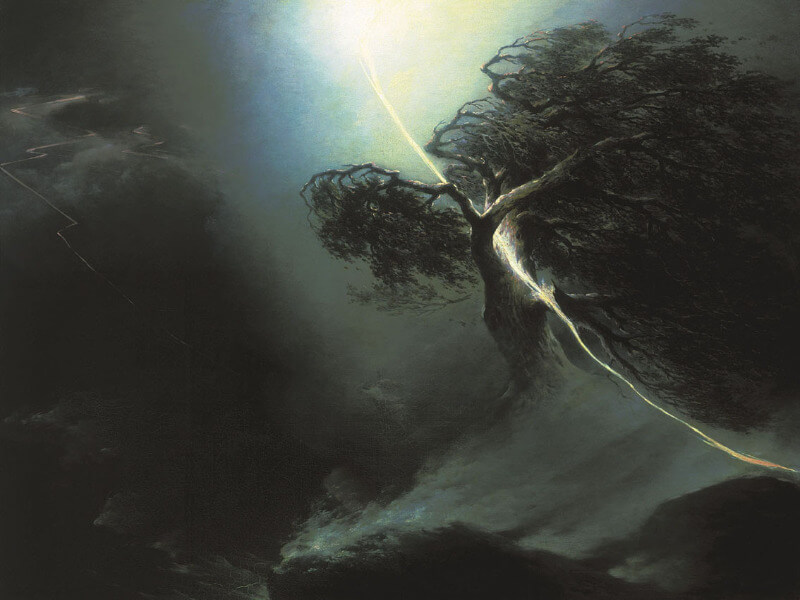Note: If you wish to receive, via e-mail, (1) my weekly newsletter or (2) daily copies of these posts, write to me at rrbates1951@gmail.com. Comments may also be sent to this address. I promise not to share your e-mail with anyone. To unsubscribe, write here as well.
Friday
I’ve been reading Indigo: The Color of Grief, Jonathan Foster’s recently released book of poems about the death of his 20-year-old daughter, which is salve for anyone who has lost a child—or for that matter, anyone who has lost someone close. In my case, we lost our 21-year-old son Justin, and although it happened almost a quarter of a century ago, the underlying ache is always there. Foster provides lyrics that are so poignant, so true to my own experience, that they take my breath away.
For instance, he somehow manages to capture the evanescence of one who was intensively present at one moment and then gone the next. The book opens with a memory of father and daughter being caught in a thunderstorm while hiking in the Rockies, which leads to the following image:
my daughter was a
twenty-year lightning strike
brilliant detonation
across the backdrop of
all we were
she flashed
in what now
seems like an
instant
though i think i
still see the outline
of her power
etched into the air
lingering
electricity
of the past
throbbing beauty
of the present
Many of the poems in the collection revisit memories, both of what his daughter brought to the world and of how she shaped him as a father. It brings to mind my own memories, which sometimes I carry as luminescent gems. The departed one is both “a no-thing” and “a some-thing”:
it’s weird
absence is nothing
a no-thing
but it’s very much something
a some-thing
it has no form but
it forms me
it has no energy but
it energizes me
i’m full of its emptiness
One reason why you should never tell those grieving that they will get over it is that (1) one never does, even though the grief becomes less acute and (2) because grief is a way of keeping the dead present. In A Grief Observed, C.S. Lewis talks about the pain of the second death, which is the death of the grieving. In the week before the first-year anniversary of Justin’s death I remember feeling terrified of losing Justin this second time. But I need not have worried. The dead always remain, as Foster assures us they will.
Foster opens and closes his book, prologue and epilogue, with the thunderstorm episode, and I wonder if he is alluding to the concluding section of T.S. Eliot’s Waste Land. In “What the Thunder Said,” Eliot speaks of his desolation as he wanders through a waterless landscape. Yet, in the end, there is the promise of rain and of healing grace, and the poem’s last line is “Shanti, shanti, shanti,” which means “peace, peace, peace.” Eliot compares this to the Biblical “peace that passeth all understanding.”
Foster too seems to find a kind of peace in how the electrical presence of his daughter still “lingers in the air”:
throbs of beauty
the past electricity
lingers
in the air
power etched
in an outline
flash
across the backdrop
of all we see
the detonation is brilliant
lightning bolt
beauty terrible beauty
air charged with a buzz
pine trees in sway
atmosphere smell
i remember
The two are pelted with rain and surrounded by thunderous explosions:
on top of us
behind us
before us
shale and rock
And yet, because of the lightning flashes, the mountain seems to rise up toward the “brooding skies”:
the mountainside
scrambling up toward
brooding skies
thunder
I sense a kind of uplift in that final image, despite the cosmic chaos. We have been blessed with “beauty terrible beauty,” which death cannot take that away. As Foster, echoing Paul in Corinthians 2, writes immediately before the epilogue,
and
now these two questions remain
why do bad things happen?
and why do good things happen?
but the greatest of these is
why do good things happen?
There may be one other Eliot tie-in. In his final lines, Eliot talks of using these fragments—fragments of different poems and different languages—to shore up against “my ruins.” Foster talks of doing the same in an introductory poem that explains how the poems were composed:
i have written this story
the way i received it
the way it’s been bouncing
around inside
conversational tone
short sentences
hints
suspicions
little punctuation
no capitalization
That seems a powerful way to deal with loss. Death defies all of our meaning-making attempts—no use of language can fully do justice to the tragedy—but we make do with the fragments that we have. It helps explain why Indigo comes as close as anything I have read in a while at capturing what it’s like to lose a child.


